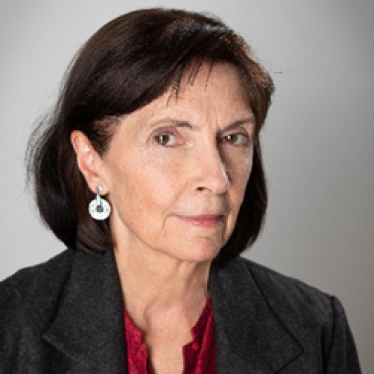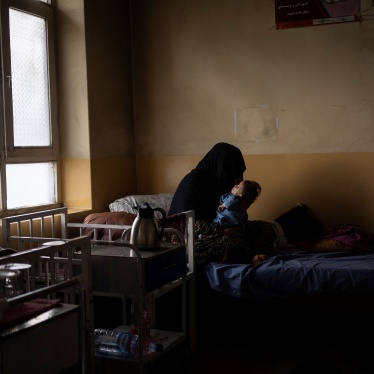Who won the Afghan elections? Not the voters who responded to the first round with genuine enthusiasm, defying the risk of Taliban violence. Certainly not the 11 men whose fingers were severed by the Taliban for daring to vote. Not Afghan women, who were virtually invisible at the presidential palace in Kabul on Sunday when rival presidential candidates Ashraf Ghani and Abdullah Abdullah signed a power-sharing deal to end the standoff over the disputed election. In fact, there were no women at all at the table when President Hamid Karzai summoned notable “elders” to give their stamp of approval to the power-sharing arrangement.
The table where Karzai, Ghani, and Abdullah met with the Afghan political elite on September 19 to cut that deal speaks volumes for the priority the country’s leadership holds for human rights: many were the warlords, mujahidin commanders, and other strongmen responsible for 25 years of atrocities, beginning with the fighting in the 1990s. In an act of sinister déjà vu, those individuals with blood-stained hands were empowered to help to divvy up the power pie much like their representatives did at the international conference in Bonn in 2001 that created Afghanistan’s post-Taliban transitional government. The message from the table was clear: failure to appease these powerful, violent figures could spark a new civil war.
The politics of appeasement, backroom deals, and impunity is still with us. Afghanistan’s foreign donors have increasingly grown tired of a country where the internal conflicts appear too numerous and the achievements too few. The presidential election and its allegations of massive fraud have only compounded that donor fatigue.
Too often, however, tenuous but meaningful advances in human rights over the last decade get overlooked. Afghan women’s rights activists risk their lives defending opportunities and legal protections that were non-existent in 2001. The emergence of a free media over the past decade has helped raise public awareness about key issues, including human rights. The law boldly proclaims the rights of due process – even though these are seldom respected by the police or courts.
These gains are undeniable, but fragile. When I was in Kabul two weeks ago, Afghan journalists and civil society activists made it clear that they will pay the price if the foreign nations that have supported Afghanistan since 2001 abandon the country after 2014. Instead, foreign donors need to make long-term commitments to protecting those hard-won gains in human rights and the rule of law. That’s crucial to help inoculate Afghanistan’s political processes from the malign influence of aging warlords.








